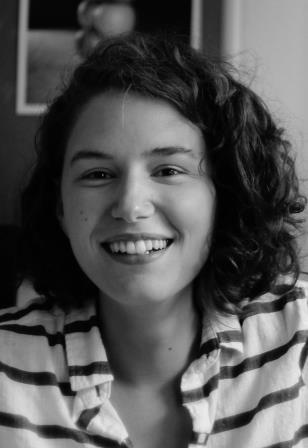
Logic and Conversation: Fall 2016
• Amsterdam • Master of Logic, University of Amsterdam
Traditionally, logic is concerned with the characterization of valid reasoning and argumentation, and therefore identifies the meaning of a sentence with its truth conditions. When analyzing the meaning of sentences in conversation, however, other notions become of interest as well. Truth conditions capture the information that a sentence provides. But some sentences do not provide information, but rather raise an issue (e.g., Where are my keys?), or draw attention to a certain possibility (e.g., They might be in the car).
The focus of the course will be on inquisitive semantics and attentive semantics, which both enrich the traditional truth-conditional picture in ways that allow for a more comprehensive logical analysis of the meaning of sentences in linguistic interaction. We will also explore some ways of combining inquisitive and attentive semantics, an area of current research.


Term papers
The course has ended, and has led to some very interesting term papers:
- Anthia Solaki: Integrating justification into inquisitive epistemic logic
- Eiseart Dunne: A Haskell model-checker for inquisitive dynamic epistemic logic
- Hana Möller Kalpak: Polar and disjunctive questions in attentive semantics
- Ho-Yin Lui: Inquisitive Justification Logic
- Jakob Piribauer and Joannes Campell: Presumption and epistemic modalities in InqLP
- Laura Aina and Zoi Terzopoulou: Becoming aware in inquisitive epistemic logic
- Natalia Philippova and Alison Pasquariello: Redefining context update motivated by insights from human reasoning
- Rene Mellema: A comparison of DELQ and IDEL by an analysis of models
Prerequisites
Good working knowledge of first-order logic is required, and some background in formal semantics is convenient, though not really necessary. For students of the Master of Logic, it is usually best to take this course in your second year (although there may be exceptions of course, depending on your specific background).
Lecture notes
The lecture notes for the first part of the course (including exercises) can be downloaded here.
Grading
The grade will be based on two homework assignments covering the material from the first part of the course (each counting for 20%) and a final paper (60%).
Assignments
- latex resources
- first assignment (due September 18).
- second assignment (due October 2).
Instructions for final paper
The final paper can be written either in groups of 2-3 students or individually. We strongly encourage working in groups, but if someone already has a particular topic that they want to work on and cannot find others interested in this topic, then working individually is permitted. Students are encouraged to discuss possible topics with us early on in the course. Topics and groups should be determined by October 10 at the latest. A preliminary version is to be presented during the last lecture, October 20, and the final version is due after the exam week, on October 30 (midnight). See Appendix B of the lecture notes for pointers to relevant literature, which may help in finding an interesting topic.
Grading criteria for final paper
The criteria are the same as for a master thesis, though of course here we do not expect as much as in the case of a thesis.
- Correctness All claims should be correct, precisely formulated and carefully argued for.
- Writing The paper should be well-structured; the writing should be clear and concise. Typically, papers are around 10 pages. There is no official upper or lower bound, but quality is preferred over quantity: a single idea or result that is clearly explained in 7 pages is better than a collection of multiple half-baked ideas discussed in 15 pages.
- Difficulty Both conceptual and technical difficulty are taken into account.
- Originality The paper should contain some new results. This can take many forms: establishing previously unknown properties of one of the logics discussed in class, or closely related ones; further enriching the theories discussed; developing new applications; developing a theory of your own that solves some of the remaining challenges for the theories discussed.
Late policy
The deadline is intended to be strict. Late submissions will be accepted until three days after the deadline, but 0.5 points will be substracted from the grade per day.
Schedule
Tuesdays 11.00-13.00 (G0.23), Thursdays 13.00-15.00 (B0.208)
| # | Material | Content | Lecturer | |
|---|---|---|---|---|
| Inquisitive semantics | ||||
| 1 | LN chapter 1 | Motivation | Floris | |
| 2 | LN chapter 2 | Basic notions | Floris | |
| 3 | LN chapter 3 | Operations on propositions | Floris | |
| 4 | LN chapter 4 | First-order inquisitive semantics | Floris | |
| 5 | LN chapter 6 | Declarative and interrogative lists | Floris | |
| 6 | LN chapter 5 | Question semantics | Floris | |
| 7 | LN chapter 7 | Inquisitive epistemic logic | Floris | |
| Attentive semantics | ||||
| 8 | CGR 2009 | Inquisitive semantics with attentive content | Floris | |
| 9 | Roelofsen 2013 | Bare bone attentive semantics | Floris | |
| 10 | Westera 2013 Gamut Ch6 |
Attentive pragmatics For background on standard Gricean pragmatics |
Floris | |
| 11 | Willer 2013 | Attention as live possibilities | Nadine | |
| 12 | Willer 2015 | Integrating inquisitive and attentive content I | Nadine | |
| 13 | Roelofsen 2016 | First sketch of inquisitive live possibility semantics | Floris | |
| 14 | Project presentations | |||